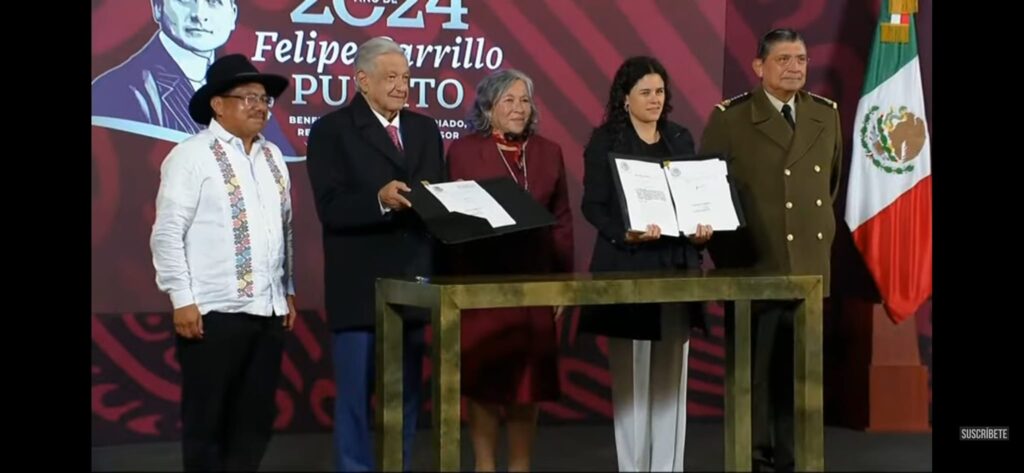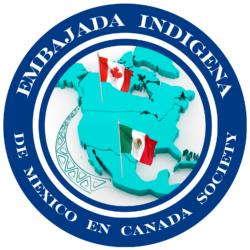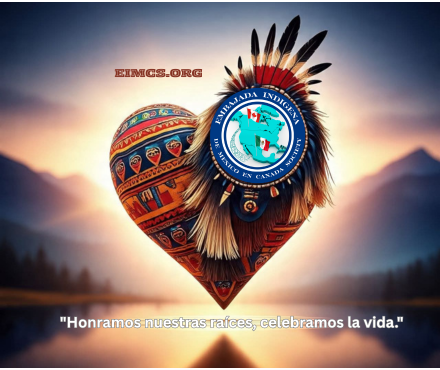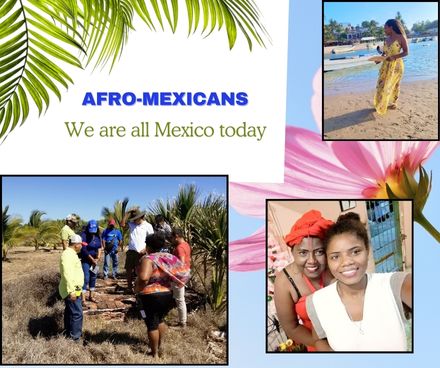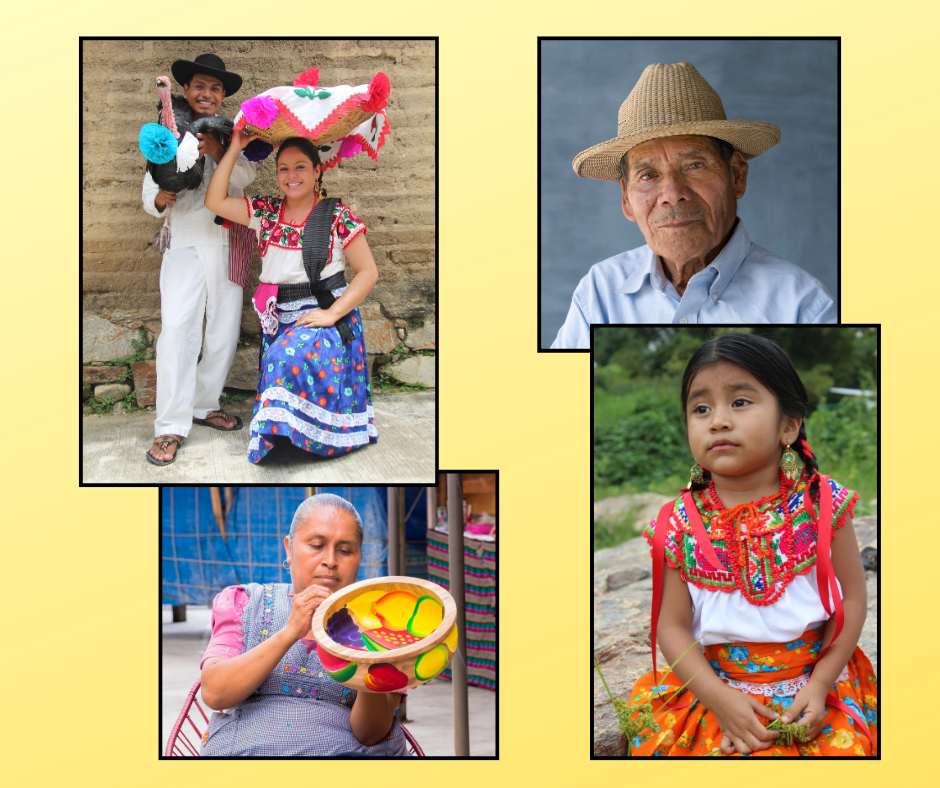![]()
Unalienable rights are fundamental rights that cannot be denied by the authorities or the government to a person. They are considered unassailable because they are natural or fundamental.
Constitutional Reform Initiative on the Rights of Indigenous and Afro-Mexican Peoples of Mexico.
The Indigenous Reform initiative has been built with broad consensus among peoples and communities; it is based on their ancestral demands and vindicates their main struggles in accordance with the postulate of this government that, for the good of all, the poor come first, especially the indigenous peoples of Mexico.
With a call for reconciliation and peace, and with the objective of building a new relationship between the Mexican State and the indigenous and Afro-Mexican peoples, from June 19 to July 25, 61 follow-up assemblies were held on the process of free, prior and informed consultation on the constitutional reform on the collective rights of indigenous peoples.
This is how this monitoring phase ends, based on the resolutions of 54 consultation forums in 27 entities and one with indigenous migrants living in the United States, from June 21 to August 4, 2019.
With the contributions collected in the 61 assemblies, the Technical Committee of Experts will be able to put together a consolidated document of the initiative, which will be delivered to President Andrés Manuel López Obrador.
More than 20 thousand municipal, agrarian and community authorities of indigenous and Afro-Mexican peoples participated in this unprecedented process, whose purpose is to build an initiative that guarantees their collective rights, that recognizes them as subjects of public law and that asserts their autonomy and self-determination.
This reform seeks to modify 15 articles of the Constitution, based on history, roots and ancestral culture, as an act of elementary justice and humanity, which responds to long struggles of resistance against the persecution, harassment, exclusion, discrimination, racism and dispossession that indigenous peoples have suffered.
The proposal, presented in the monitoring stage, vindicates the San Andrés Larrainzar Accords, as well as the Plan of Justice for the Yaqui People, among other agreements and treaties that are based on the historical struggles of the 68 indigenous peoples and Afro-Mexicans.
This exercise is based on the commitment of the Government of Mexico to listen to the people and for the laws to be the result of a process of reflection, analysis and collective construction, to move from a long stage of repression, abandonment, exclusion, discrimination and racism, to a scenario in which the inalienable rights of peoples and communities are recognized.
Source of information: https://www.gob.mx/inpi/articulos/el-presidente-andres-manuel-lopez-obrador-firma-decreto-de-reforma-constitucional-sobre-derechos-de-los-pueblos-indigenas-y-afromexicanos?idiom=es
President Andrés Manuel López Obrador signs the Decree of Constitutional Reform on the Rights of Indigenous and Afro-Mexican Peoples
Mexico City, September 30, 2024.
In order to settle a historic debt and do justice to the peoples of deep Mexico, in a historic event, the President of the Republic, Andrés Manuel López Obrador, signed the Decree of the Constitutional Reform on the Rights of Indigenous and Afro-Mexican Peoples, which will be published in the Official Gazette of the Federation (DOF), in its evening edition today to begin its validity.
The Decree that reforms, adds and repeals article 2 of the Political Constitution of the United Mexican States on indigenous rights, will fully guarantee the rights of Indigenous and Afro-Mexican Peoples to be recognized as subjects of public law with legal personality and their own assets.
The above, after the Initiative had been approved by both federal legislative chambers and in the majority of the state congresses, in which the legislators of various political forces of 26 state congresses agreed on their vote in favor of the opinion that reforms, adds and repeals Article 2 of the Constitution, which allowed the declaration of constitutionality and thus fully guarantee the rights of the Indigenous and Afro-Mexican Peoples.
Approved by the Senate of the Republic on September 24, the Minutes reached the state congresses and were approved by the following federal entities: Mexico City, State of Mexico, Baja California, Baja California Sur, Hidalgo, Campeche, Colima, Chiapas, Chihuahua, Durango, Guerrero, Michoacán, Morelos, Nayarit, Oaxaca, Puebla, Quintana Roo, San Luis Potosí, Sinaloa, Sonora, Tabasco, Tamaulipas, Tlaxcala, Veracruz, Yucatán and Zacatecas.
Process of building the Reform on the Rights of Indigenous Peoples
It is important to highlight that the Indigenous and Afro-Mexican Reform Initiative was built with broad consensus of peoples and communities; it is based on their ancestral demands and vindicates their main struggles in accordance with the postulate of this government that: “for the good of all, first the poor, especially the indigenous peoples of Mexico.”
With a call for reconciliation and peace, and with the aim of building a new relationship between the Mexican State and indigenous and Afro-Mexican peoples, 54 consultation forums were held in 27 states from June 21 to August 4, 2019, including one with indigenous migrants residing in the United States. With the contributions collected in the 62 assemblies, a technical committee of experts put together a consolidated document of the Initiative.
Subsequently, from June 19 to July 25, 2021, 62 follow-up meetings were held on the free, prior and informed consultation process on the Constitutional Reform on the rights of indigenous and Afro-Mexican peoples.
Once the consultation was carried out and the document was integrated, on September 28, 2021, the Constitutional Reform Initiative on the Rights of Indigenous and Afro-Mexican Peoples was delivered to the President of the Republic in the community of Vícam Pueblo, the first seat of the Yaqui People, within the framework of the event called “Justice for the Yaqui People. Request for forgiveness for grievances against indigenous peoples.”
From December 2023 to January 2024, the final analysis process of the Reform Initiative began, coordinated by the Legal Counsel of the Federal Executive and the Ministry of the Interior.
On February 5, 2024, President Andrés Manuel López Obrador presented the Constitutional Reform Initiative which, for the first time in the country, seeks to recognize not only indigenous peoples and communities, but also the Afro-Mexican people, as subjects of public law, with legal personality and their own assets within the Political Constitution.
Subsequently, the Initiative entered into a process of ruling and approval by the Congress of the Union: on August 9, 2024, the Initiative was ruled on by the Constitutional Points Commission of the Chamber of Deputies; on September 18, the Opinion was approved by the plenary of the Chamber of Deputies; on September 23, the ruling of the Initiative was made by the Joint Committees of Constitutional Points and Legislative Studies of the Senate of the Republic, and on September 24 of the same year, the Opinion was approved by the Plenary of the Senate of the Republic unanimously by all parliamentary groups.
Consecutively, after approval by the Congresses of the majority of the federative entities, the Congress of the Union declared on September 29, 2024, the constitutionality of the Decree.
Finally, today, September 30, the President of Mexico, Andrés Manuel López Obrador, signed the Decree of Constitutional Reform on the Rights of Indigenous and Afro-Mexican Peoples for its publication in the Official Gazette of the Federation for the beginning of its validity.
Source of information: Official Website of the Government of Mexico. Follow this link for more information.
https://www.gob.mx/inpi/articulos/el-presidente-andres-manuel-lopez-obrador-firma-decreto-de-reforma-constitucional-sobre-derechos-de-los-pueblos-indigenas-y-afromexicanos?idiom=es
On his last day in office, President Andrés Manuel López Obrador signed the Decree of Constitutional Reform on the Rights of Indigenous and Afro-Mexican Peoples, which will be published in the evening edition of the Official Gazette of the Federation.
